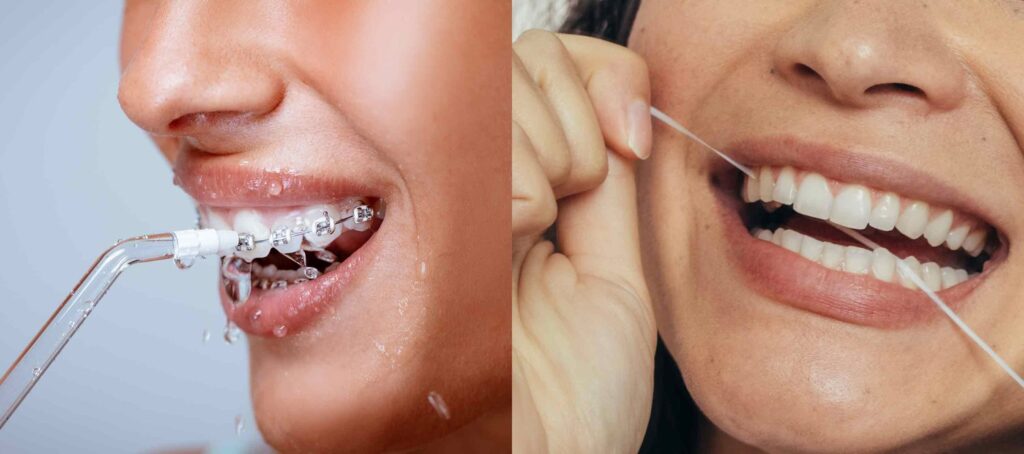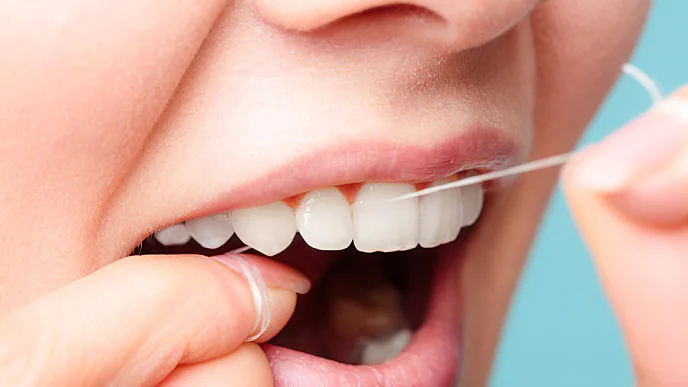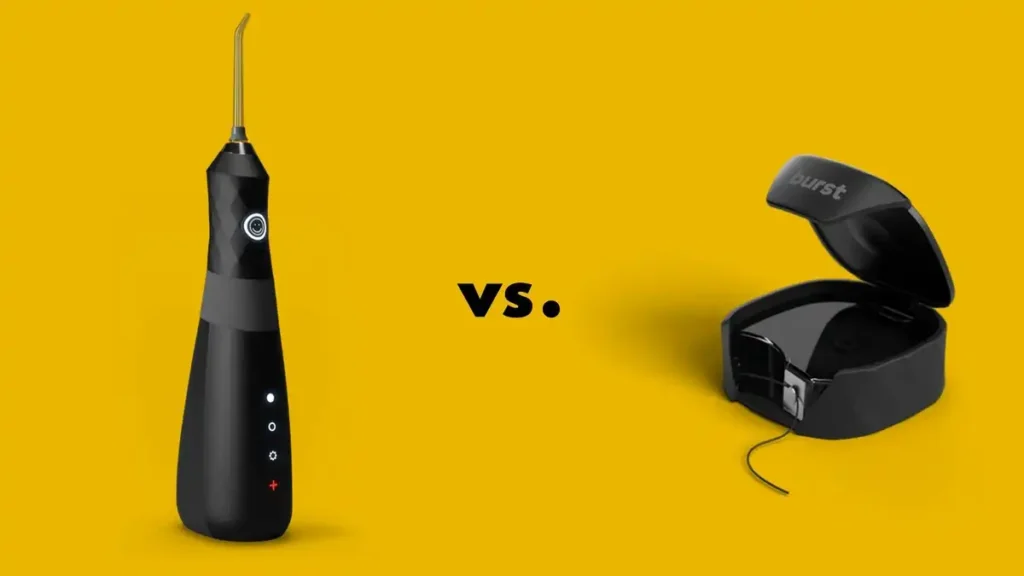
Every dental check-up often starts with the familiar question, “How often do you floss?” Many of us sheepishly respond with, “Not as often as I should.” Despite its importance in oral hygiene, flossing is frequently overlooked. For those who find traditional flossing tedious, water flossers have emerged as a popular alternative. Water Flossers vs. Traditional Floss. Which one is better? According to a study, water flossers can reduce plaque scores by 74.4% in a single use, compared to 57.5% for traditional floss. This article explores the effectiveness of water flossers versus traditional floss, helping you decide the best option for your dental routine. Connect with Dr. Garima Yadav if you’re still confused about the flossing technique to be used.
Understanding Traditional Floss

Traditional flossing involves using a thin, waxed string to clean between teeth. When you eat, food particles can get stuck in these spaces and along the gumline. Brushing alone may not remove all debris, leading to plaque buildup and, eventually, tooth decay.
Flossing helps remove these trapped particles, preventing tooth decay and reducing the risk of gum disease. By sliding the floss between teeth and gently moving it up and down, you can effectively clean areas that a toothbrush cannot reach. Regular flossing keeps your mouth cleaner and healthier.
The Rise of Water Flossers

Water flossers, also known as oral irrigators, have gained popularity as an alternative to traditional flossing. These devices use a stream of water to clean between teeth and along the gumline. They can be especially useful for people with braces, dental implants, or other dental work that makes traditional flossing challenging.
Water flossers work by directing a pulsating stream of water to remove food particles and plaque. This method can be less abrasive than traditional flossing and may be more comfortable for some users. The water can reach deeper into gum pockets, providing a thorough cleaning.
Comparing Effectiveness: Water Flossers vs. Traditional Floss
Both traditional flossing and water flossers aim to improve oral hygiene, but their effectiveness can vary. Studies have shown that water flossers can be as effective, if not more so, than traditional flossing in reducing plaque and gingivitis. The pulsating water can reach areas that traditional floss might miss, providing a more comprehensive clean.
However, traditional flossing allows for more precise control, which can be beneficial for removing stubborn particles. The tactile feedback from the floss can also help ensure that you are thoroughly cleaning each tooth.
– Ease of Use and Convenience
- Traditional flossing can be time-consuming and requires a certain level of dexterity. Some people find it difficult to maneuver the floss properly, especially around the back teeth. This can lead to inconsistent flossing habits.
- Water flossers, on the other hand, are generally easier to use. They require less manual dexterity and can be more convenient for daily use. Most water flossers come with various pressure settings and interchangeable tips, allowing users to customize their cleaning experience.
– Cost Considerations
- Cost can be a significant factor when choosing between traditional floss and water flossers. Traditional floss is relatively inexpensive and widely available. A single roll of floss can last for several weeks, making it a cost-effective option.
- Water flossers, however, are more expensive upfront. Prices can range depending on the brand and features. Additionally, water flossers require maintenance, such as replacing tips and ensuring the device remains clean and functional. Over time, these costs can add up.
– Suitability for Different Users
- Traditional flossing may be challenging for individuals with arthritis or other conditions that affect hand dexterity. For these users, water flossers can offer a more manageable alternative. The ease of use and minimal manual effort required can make a significant difference in maintaining oral hygiene.
- People with braces, dental implants, or bridges may also find water flossers more effective. The water stream can easily navigate around these dental appliances, ensuring a thorough cleaning without the risk of damaging the hardware.
– Health Benefits and Recommendations
- Both traditional flossing and water flossing offer significant health benefits. Regular flossing, whether with string or water, can help prevent gum disease, cavities, and bad breath. Maintaining good oral hygiene is also linked to overall health, reducing the risk of conditions such as heart disease and diabetes.
- Dentists generally recommend incorporating some form of flossing into your daily routine. If you prefer the tactile feedback and control of traditional floss, stick with it. If you find traditional flossing difficult or uncomfortable, a water flosser might be a better choice.
Making the Right Choice: Water Flossers vs. Traditional Floss

Ultimately, the choice between water flossers vs. traditional floss comes down to personal preference and individual needs. Both methods are effective at improving oral hygiene, so the best option is the one you will use consistently.
If you’re unsure which method is right for you, consider trying both. Many people find that a combination of traditional flossing and water flossing provides the best results. For example, you might use traditional floss in the morning and a water flosser in the evening.
Expert Guidance and Recommendations
Getting advice from seasoned dental professionals can help you make an informed decision. For instance, Dr. Garima Yadav, renowned as a top implant dentist in India, offers valuable insights and expert care. Her extensive experience ensures that patients receive exceptional and precise treatment. Water Flossers vs. Traditional Floss. The choice is yours!
Conclusion
Maintaining good oral hygiene is crucial for overall health. Whether you choose traditional flossing, water flossing, or a combination of both, the key is to be consistent. By regularly removing food particles and plaque from between your teeth and along your gumline, you can prevent dental issues and enjoy a healthier smile.
Evaluate your personal needs, preferences, and budget when deciding between traditional floss and a water flosser. Both methods offer unique advantages, and incorporating one or both into your daily routine can lead to better oral health.